#The Three-Card Monte Job
Text






Leverage 3x9 - "The Three-Card Monte Job"
#christian kane#leverage#eliot spencer#alec hardison#aldis hodge#parker#beth riesgraf#nathan ford#timothy hutton#sophie devereaux#gina bellman#the three-card monte job#so judgy eliot#think of it this way: to parker these are very distinctive under-secured banks
556 notes
·
View notes
Text


"The Three-Card Monte Job" doodles
#leverage#parker leverage#eliot spencer#alec hardison#sophie devereaux#drawings#the three-card monte job
22 notes
·
View notes
Text
Leverage Season 3, Episode 9, The Three-Card Monte Job, Audio Commentary Transcript
Dean Devlin: Hi, I'm Dean Devlin, Executive Producer and Director of this episode.
John Rogers: I'm John Rogers, Executive Producer.
Christine Boylan: I'm Christine Boylan, writer of this episode.
John: Welcome to...
Christine: The Three-Card Monte Job.
John: This one was a bitch.
[Laughter]
Christine: It was a beautiful bitch.
John: You know, we—we speak plainly. It was a bitch. We had introduced the idea of Nate Ford's father in the episode you'd written...
Christine: The Bottle Job.
John: Called The Bottle Job, and then insanely decided to let him be alive at the end of it. Which led us down the story path of, well, we gotta bring it up eventually, and that led to a really hard thing, which is, who exactly is this guy? You know, we spent a lot of time and energy trying to define this character. Uh, and build a plot around exactly what he would do.
Dean: A lot of it, too, came out of Tim's performance in The Bottle Job, because at the end of the episode he looked at the chair his father sat in, and this look—intense look came across his face, and all of us went, 'Ooh, what's going on there?'.
John: He does not know how he feels about that guy.
Christine: Yeah, we've had a lot of conversations about that look and that chair since then.
John: Um, and that was David Meunier, uh, being menacing, who's a fantastic actor also on a couple other shows; he really had a great year. And, uh—how did we find the crime plot on this one, Ms. Boylan?
Christine: How did we find the crime plot on this one, John? There were several crime plots!
John: There were. I remember we had the idea of the dad coming in and running something. It's interesting 'cause the hardest thing we ever do is when we have the crew try to stop someone, uh, that is not necessarily always either of what the crew or the show format is built for. So we really had to come up with three cons—three levels of crime. We had to figure out what he appears to be doing, what our team does in opposition, and then what he's really doing because he's also a con artist. It—it's one of the hardest things to break, is when we're trying to interfere with someone else's plan.
Christine: It's tough, we were playing with what to show the audience at what time, how much to reveal when.
John: For example, how long we kept the dad back. And you were the one, I believe, who said we should not—that's the reveal. Dean was the one who said the act one reveal is the dad, you know, and really pinned it back. And Dean came into the room on this one and really hacked around on it, 'cause he had, he had, uh...really dug in on this character and this whole relationship and knew how he wanted to direct it, knew how he wanted to present it.
Dean: I thought that this was a great opportunity for us to understand Nate in a way that we never had before, to explain a lot of his behavior, uh, just by seeing what he grew up in.
John: And when you're talking, you're talking episodes that focus on deep, roiling emotional turmoil, you're talking Christine Boylan.
[Laughter]
Christine: I love deep, roiling emotional turmoil.
John: If you could write this, and the—all five of the actors were just on a blank stage with a spotlight, just doing monologues—
Christine: That would make me so happy.
John: You'd be the happiest girl alive.
Christine: But I also love the slapstick between Christian and Beth here.
John: This, again, this was something we kind of found in the last day or last year, that Eliot and Parker scenes are great. They just, both the characters and the actors have a great, have great chemistry.
Dean: And intercutting with Aldis here really worked, I mean, you just got their family dynamic.
Christine: Yeah. He just- he delivers exposition like nobody's business, Aldis Hodge.
John: Well, when he auditioned, we had the audition piece for the pilot was the giant speech explaining the airplane scam, and everyone else kind of struggled through it, and Aldis went through like an F1 driver, just kissing the curves, just like—and there's the joke, there's the joke, here you go. And the second he walked out of the room we're like, 'Yeah, that's the guy. That's the—that's going to be the hardest job in the show for five years.' So yeah, we wound up actually taking something off the wall, which was the police station, we always wanted to do a heist in a police station, and instead of giving it to our guys, giving it to the other bad guys, and then building the plot up from there.
Christine: It's a pretty good—pretty good scam.
John: It's a great scam.
Christine: We actually thought several times, 'Why don't we just do this?' This one of those, we could pull this off!
John: It was—it was—and here's—we're doing a detective work act which is, which is pretty rare for us. Is there any different way you kind of approached the investigatory scenes, uh, directing them, as opposed to kind of the...?
Dean: Kind of a lot of long lens stuff here, so that you feel like their POV is—and because you put such an interesting thing in the script about the tattoos, to try and do these through all really long lens, uh, you try and get this distant look, so you feel like you're with them in the corner, watching. This is actually one of my favorite fight scenes, but not because of the fight, but because of Parker's, uh, injecting herself into it.
John: Yes, and imitating Christian. Whenever other characters imitate Eliot, it's always amusing to me. It's- one of my favorite things is Will Wheaton in The Ho-Ho Job, where he’s needling Eliot.
Dean: And we kept the taser alive in this! Which has a lovely payoff at the end of the season.
John: We did pay attention.
Christine: That's a little rain.
John: A little rain, a little atmo.
Christine: This was, uh, forty days and forty nights it had rained, when we started shooting this?
John: Yes. Everyone was going a little crazy, just a little crazy. Is that outside the theater where we eventually shot the finale?
Dean: That is.
John: That is also the theater, which is also the parliament building in San Lorenzo in the finale. Which you all have seen already by now, because I know how this goes, everyone watches the box set and then they go back and they watch the commentaries.
Christine: I hope so.
John: This was a lovely speech, um, the speech about exactly where, uh, Sophie draws her moral line. You know, and that was tricky. We talked about in one of the other commentaries, third year is where you see how they all kind of justify...we're past them being a family; you see why each person's in the thing, in the crew. Uh, Hardison wants to run his own crew, Parker has found that she's becoming a normal human, Eliot is trying to redeem himself, we go a lot more into Eliot's background, and Sophie, you find out, has this really interesting view of right and wrong. Uh, did you shoot this?
Dean: Yeah, I did. And I love that she throws the—
[Laughter as Parker throws the crowbar, hitting Eliot]
John: I know, right, it's just so wrong.
Dean: Now this is a fun little trick that, you know, when you've got these stunt crowbars that totally don't look real, so we added all the digital sparks every time they hit.
John: Oh, cool.
Dean: To try and give it some weight. And in fact, this was a total improv on her part.
John: Just happened to have the camera on her at the time? I was disappointed you did not go with my idea to make them lightsabers, because the digital effects are practically the same—
[Laughter]
John: And it would have been a much more thrilling fight.
Dean: This is where you're in two totally different locations, to make them seem like it's one location.
Christine: And one with pouring rain and the other with not, and it looks great!
John: What, wait, so the front of McRory's—that's right, where is the front of McRory's?
Dean: That's on the other side of Portland, and then the reverse was downtown Portland.
John: Oh, that's great.
Dean: I like this little move here, I thought that this was a clever move. He uses his own weight against him.
John: Yeah. Uses his own momentum against him. And also Hardison, uh, Hardison bugging out, Hardison's not thought his exit out, clearly.
Christine: Well he's got the soda now, he's going to be alright. He'll be okay.
John: Exactly.
Dean: Oh, this is also the introduction of the alley that leads to the back entrance of McRory's, which we'd never seen before.
John: We actually have now extended the geography of this imaginary bar out a ridiculous length, because it's actually continuous.
Dean: Yeah, this was one shot, actually—now it's intercut, but this was one long steadicam shot from the alley into it, all the way up to the bar.
John: First time we see somebody else using the back room, um...did we shoot-? No, we shot off-season as the temporary headquarters. And then the idea that, you know, that ‘somebody's been sleeping in my bed’ pisses him off to no end. And what's kind of cool is Tim really is playing Nate as well ahead of everyone else at this point; he knows exactly what the hell's going on, and he is not pleased. Um. Nice wardrobe choice, actually, too, putting both of them in black there, I like that. It's a very classic sixties look.
Dean: And again, I love Aldis faking that he knew all along that everything was okay.
Christine: Yeah. He's gonna be fine. Everything's fine.
John: Totally. Um, yeah, so the, uh—
Dean: And the look on their—on these two faces when they realize they've got the wrong guy, like, they've got this look like, 'Daddy's gonna be mad at us for beating up an innocent person!'
John: They're just not—little look sideways, ‘We're not going to tell anybody this happened; just move right along.’
Christine: They're adorable. [Laughter]
John: Um, why don't you tell us what you were trying to do when we, the confrontation scene, here?
Christine: Oh, the confrontation scene! I mean, you know, you want to pull back, as much as possible, and let these great actors do their work. Less is more, that is what I was thinking, and whatever's on the page, pull it out if you can on set, you know.
Dean: Now, a little-known fact is that Tom Skerritt here, playing his father, brilliantly I might add, was originally supposed to play his father in Ordinary People.
John: Did not know that.
Dean: So, and he turned that part down. So this was kind of...
John: Well that movie went nowhere.
[Laughter]
Dean: So this was kind of the relationship that, that should have happened and never did, and finally did.
Christine: Wow, that's great. And these two, they can just go, they can just go for hours, I mean, play with improv, they were two great actors using their craft together, it was great.
Dean: And because of it, it was really one of the few times where we actually shot both directions at the same time. Normally you shoot one side, and you stop, you go to the other side and reverse it.
John: So, one camera on the other side of the bar, how are you shooting this?
Dean: Both raking shots, towards the father and towards Tim, are being done simultaneously. And normally we would never do that, 'cause there's some sacrifices in cinematography when you do it, but what it allowed was a freedom of acting, so they didn't have to worry about matching, they didn't have to worry about where their hands are, where their heads are, because we had it covered from both sides simultaneously—and frankly, every take was different. So we knew, when we put these two guys together, just set it up like a play, and let them go.
Christine: You've ruined me, Dean, because now I wanna shoot everything that way.
[Laughter]
John: That is not—no, please do not do that on other shows—
Christine: Ruined!
John: Grind their production to a halt... This actually, the wardrobe in all of this is a really somber tone; Nadine Haders made a lot of great choices in this, it's very—we're kinda doing The Friends of Eddie Coyle here. It's really, much like The Bottle Job, it's really one of our episodes that lives in Boston a lot more.
Christine: There's a gritty 70s feel to everything.
John: Yeah, yeah. That's where—that's where Jimmy Ford's from - the 70s; he's the 70s guy, yeah. And um, but dealing with a lot of the real facts in the evolution of crime, although the Russian mob coming in is much more sort of a New York, um, Long Island thing, uh, but yeah, the idea that Jimmy went to jail and came out and the world had passed him by... Some people give up. Nate Ford's father wouldn't give up, just the way Nate wouldn't give up.
Christine: Stubborn bastards, these two.
John: Yeah, basically. He's a vicious- he's really an unpleasant human being.
Christine: He scared the hell out of us during a couple of takes, I have to say! Like, I was terrified.
Dean: I thought, after we shot the scene, I felt like, oh, now I start to get Nate. Especially this flashback.
Christine: Oh wow.
John: How did we come up with the Three-Card Monte bit? This has been driving me crazy.
Christine: Ahhhh...something about the thing that's never on the table. It started with the ending. It started with what's not on the table.
John: That's right. What's the one thing we're not looking at, and what's the—and, exactly, we play like, what are the metaphors. Everyone thinks differently.
Dean: Now, on a technical thing, the only other time we used that color lut, was when we did the 70s karate flashback, uh, flash-forward fantasy sequence in The Two Live Crew Job.
John: Oh, wow!
[Laughter]
Dean: So that is our 70s color let.
Christine: Very nice.
Dean: And a different young Nate.
John: A different—yeah, it was interesting because the dad definitely, there was a vibe in, uh, sort of our original intent in those flashbacks, that he was kind of this sorta, 'Hey kid, I'll teach you how to play the, uh, do Three-Card Monte', and then you see the performance and it was like, no this was not a good dad. Nate Ford was a Jesuit who became—went to become a Jesuit, become an insurance cop and is now a thief. He's not a healthy human being.
Christine: I mean, his dad said, 'pay attention,' and now he pays attention viciously and to a fault. That's his life.
Dean: And I love here how the crew doesn't want to insult Nate's father.
Christine: Awkward.
John: Tread carefully around that.
Dean: In fact, one of my favorite shots that we've ever done with Tim is in this scene, ah, from behind the glass, looking through the photo of his father.
John: He is—he's—I think this is the darkest color palette in a wardrobe we ever put him in. He stays, yeah, this is, again, a very classic look. Ah, where else did the crime story go? The Three-Card Monte started from the end—oh, yeah, and it was great when we were trying to break the crime story, um, because, two things: one, the evidence, where the evidence was stored, we thought we were making that up wholesale, and then we called the nice folks at the Boston Police Department, and they told us that it is exactly how it works. Including the Holy Oak reference, that's actually where it goes.
Dean: No kidding.
John: And in one iteration of the script, we were talking about ripping off the Holy Oak place, and then they said, 'No, no, it sits in the basement until the van comes and gets it.' We're like, well, alright then!
Christine: That was when we said we could go do this right now.
John: Yeah. Well then the other one was—there was the whole stuff about the bank alarms is absolutely accurate, and it was actually Boylan on that one, because our filthy assistant, Rebecca Kirsch, our finest assistant, she went and did the research on the—
Christine: The bank alarms.
John: The Holy Oak, and then we did the—you called the bank, the bank humans. And I remember, we're sitting in the editing bay, and you explained like, ‘Okay, how does an alarm system work?’ And they explained how slow it is, and how slowly it takes to actually confirm a bank is being robbed?
Christine: They have to confirm either by—there's one that if you don't answer, that's a confirmation.
John: Yes.
Christine: It's like, wait—if you don't answer? Or you have to say a password.
John: But there's a reason the Canadian bank robbery crew, the two minute, The Stopwatch Gang used to get away with it, they did it in two minutes, and it takes something like ten minutes to confirm a bank is being robbed. And there was that moment in the writer's room we're like, 'We could totally get away with this, now that we know that.'
Dean: That's the shot. I just love that shot.
John: That's a very good shot. How did you do that? Did you—is that an effect?
Dean: That’s an effect. We shot through the glass but we didn't have the photo at the time, so we put the photo into the glass in post-production.
John: Nice. Gorgeous shot.
Dean: But to me, this is the ghost of the father, dwarfing the son. I also love, uh, script-wise, how Sophie, her insight into Nate, knows that this is the kind of thing that could spin him off into an insanely dangerous direction, and she's trying to manipulate the situation, and she's failing.
John: Yeah. That little look she gives the crew, it reminds you again, one of the things we tried to set up the third season, they're peers now. You know, Nate's still nominally in charge, but when one of them wants to throw a flag on the field, he has to pay attention, he can't just blow through it any more. Particularly Sophie. She was running this group for six months. Um, this is a great walk—and again, this episode really benefited from the new approach we took to putting pipe in discovery in the scenes, so you weren't laying exposition, then going into the sequences - you're getting it on the fly or on the approach to the heist.
Christine: It's exciting, the audience is a part of it, they're active, it's great.
John: Also, um—
Dean: By the way, I just noticed that I saw the camera tent in the back of that previous walking shot.
Christine: How lovely!
John: I just noticed that we established that Sophie just happens to have handcuffs on her at all times!
Christine: Yes. Maybe.
Dean: I love the production value here. I love the [unintelligible] that you see here.
John: It's the birth of a thousand fanfics right there. This is great, where is this?
Christine: Customs house, right?
Dean: This is—yeah, a trading house that's empty, that's completely empty, and we used it for the school in the—the episode with the singing kid, and we used it here as the police station.
John: Do we use it in the finale?
Dean: No.
John: No? No. I could have sworn we used...oh wait, no no no, yes, that's right. [Unintelligible]
Christine: Drunk Mafia princess...
Dean: And this actor here, and forgive us for forgetting his name, actually was on public radio for years up in Oregon.
John: Oh, wow.
Dean: And he does a wonderful job acting in this.
John: And here's a callback to the pilot. Sometimes phone systems are crappy enough that you have to hack them from the inside. And Tim banging out a great—next to Lucille 2, which we took a lot of, uh, a lot of arguing over what he would name his second van.
Christine: [Laughter]
Dean: I love Gina in this scene, with this character, her drunk little Mafia princess character.
John: Yeah, it's wonderful.
Christine: And that was first Moffatt and Davis shout-out there.
John: Yes, there you go. Yeah, we all were—this was in the middle of the, uh, the new Moffatt Who, and we were all kind of madly in love. Yeah, she's—he's really good with those handcuffs and she's really comfortable, this is an odd scene.
Dean: You'll notice a lot of steadicam work again, usually when either I'm directing or John Rogers is directing, the steadicam is out a LOT.
Christine: Gary loves it.
John: Gary loves it.
[Laughter]
Christine: I call him Gary the Hero when I'm on set, because—
John: ‘Go backwards down these stairs, it'll be exciting!’ Well, I mean, it's a pulp show, you should be exiting or entering, there's no—you should never just start a scene with people just sitting in the damn room.
Dean: Lots of energy.
Christine: It's his fault for being good at it.
John: Yeah, that's basically, if he sucked, we wouldn't do it. And then, now we introduce the main. And I love that they'd absolutely put this together, know exactly what he's going to do. That's a great shot.
Christine: Great look.
John: That is a great look and a great shot.
Christine: Very nice.
Dean: And then we put Tim in the hot seat.
John: Yeah.
Christine: Mm-hm.
John: And it was, again, it was one of those things where, once we'd- I remember breaking this as the third act, it's like, alright, we've established he's going to go and offer himself. Now, here's a problem you have, which is something we faced in the season opener, which is, it's a conversation that Nate, as a character, has separate from the other people. How do you then relay it without it being, 'And then I said this and then he said this'? And that led us to what we do in the third act, which is, we started time-cutting, you know, and it really gives you an energy, you know, that helps you carry pipe. Carrying exposition in television is the hardest thing in the world.
Christine: Really is.
John: And everybody looking very menacing...oh, and the fact that the, uh, that these boxes exist and control all the alarms going in and out of police stations? Yeah, yeah, and they're installed by just humans in jumpsuits who show up once a month. Yeah, that's crazy.
Christine: It's the true stuff that scares you the most, really.
John: Yeah. There is a time that sometimes you're like, 'You know, I don't wanna do any more research, I'm done. I need to believe in a secure and ordered world.'
Dean: So this is the scene where Nate has gone off the rails, and he's abandoned the plan that he had told the rest of the team, and now he's really put himself in jeopardy.
John: And it's a nice play here, that, by having Jimmy separate from the Russians, that you're not exactly sure, even if he wins over Jimmy, exactly how this is going to play out, in what direction.
Dean: Or who's worse, his father or the Russians?
John: Yeah. Muscle or evil. Yeah, there you go. Because—and by the way, that is the classic, uh, 'Hey, when's the act over?' 'Well the act is over when somebody points a gun at someone.' There's really—if there's one universal truth in drama—
Christine: Yes, it's true!
John: —it's, uh, you have somebody pull a gun and then you go to commercial! It's hard to fuck that up.
Christine: Or drop a curtain. Same thing.
John: Drop a curtain. You know, the gun is the TV version of the curtain.
Christine: Absolutely.
John: And also I like the fact, again, Tim plays Nate much more physically this year. He's been in prison, he's faced guys like this. I mean he wasn't a guy who spooked easily in the first two seasons, but now, c'mon.
Christine: So much steadier.
John: Yeah, exactly.
Dean: And there is a thing about having to be tough in front of your father, which he plays in a really interesting way.
John: Trying to share, that came out in a little weird tone of voice there, everything okay?
Dean: What, daddy? I mean, John!
[Laughter]
Christine: Oh, you guys are adorable.
Dean: And one of my favorite lines in the script.
John: Oh, 'I don't get to go to your party.'
Christine: Oh, right—god, hilarious. It's all the delivery.
John: It is the fact that he throws it away.
Christine: The stuff is fine, but you know, it needs to be delivered correctly.
Dean: And I love this dissolve.
John: And Derek Fredrickson, the fifth Beatle, once again, you made us what we want up on the screen.
Christine: He is so good!
John: He is so ridiculously good.
Dean: And—Beth in this is great.
John: I would say, actually, I think this is the only thing that I came up with, was this bit, was the—the bank thing? Because the obsession—I bombed in and I was like, 'I got one gag. I'm out.' I'd been wanting to do this for ages, because I love the idea that Parker just roams the Earth looking at crime.
Christine: I mean, you know, some of us can't stop doing our jobs.
John: Yeah!
[Laughter]
John: Why are you looking at me?! And I'm looking at you, listen.
Christine: Why are you looking at me?
John: Technically, graphomania is a mental illness, that's all I'm saying.
Christine: I took two days off to get married! That was it.
John: I'm very happy. It was a little excessive. Uh, no, and the—cutting back and forth, using that image as an anchor image, so that geographically you know exactly where you are...this is a hard shot; you were basically doing a five-hander on one side of the shot, and a three-hander on the other, um, with matching eye lines. That's fuckin' brutal.
Christine: Technical dexterity.
John: Yes. Nice job on the directing. So, Marc directed this part, is this second unit, is this...?
Dean: No.
John: No?
Christine: He's kidding you.
Dean: I was asleep, and Gary set up the camera
John: Oh, really? Gary Camp really set this up.
Dean: Dave Connell. I came out of the trailer, said, 'Wow, that's awesome!'
Christine: I will say, I love when we light Nate's apartment in that sort of nighttime...
John: I really dig that space at night, I gotta say. We started writing to it. We started, like, re-ordering the script so we wound up in the offs shots at night, because it just lights so beautifully.
Dean: And I really enjoyed these flashbacks, I felt they came out great. I mean, it really just set the—that kind of Great Santini feel to it.
John: Yeah.
Christine: Mm-hm.
John: It's an emotionally uncomfortable episode.
Dean: Yeah, it's dark.
John: It's a lot darker than I thought it would be, going into it; the script went dark and then the performances went really dark.
Christine: Absolutely.
John: Really nicely done.
Christine: We love dark. Gotta have at least one.
John: Well, you know, the phrase we used to use in the first season, we kinda counted is: everything needs a minor chord. No matter how bright the episode is, there has to be a little minor chord somewhere in it to make sure we don't go too far over.
Christine: You can't hear the major chord unless...
John: That's a great shot! Is it a fake wall or—how d'you do it?
Dean: We just had the camera pressed up against the glass so you couldn't tell that we weren't on the inside, tracked out, and then—again, all one steadicam shot, establishing and walking to the car. Now this was a moment where it had been raining all day, so we had to get this in between rain flurries. So we had to design these things all in one shot, and then the other side all in one shot, and then try and get it before the next flurry of rain.
Christine: You did such a good job.
Dean: It was amazing that we made it.
John: It's gorgeous. And the—and it adds to it, and again, it adds that old 70s crime vibe, you know?
Christine: This is my favorite...
Dean: Also, shoutout to our composer; I love what he did with the Irish music, especially in this scene.
John: Just the little con music that really, yeah, exactly. Joseph's great at that, you remember in Scherezade, he put the little Arabian Nights flare in the exposition scene?
Dean: And this has, both in the dramatic scenes and in the fun scenes, just a flavor, not—it's not, uh, it's not overdone.
John: No, you did a lovely job with this, Christine. It's just a—it's a machine. It's a machine. Because it is, it's plotty as hell. I mean, it's interesting, this one, because it's a big, deep character episode, but, like I said, there's three crimes in this. This bastard runs.
Christine: And you know me, the plot's just an excuse to find those moments.
John: The plot's just an excuse for giant speeches!
Dean: It's my belief that that's the first moment that those two ever actually had fun together.
John: Oh yeah, probably.
Christine: That's why it's my favorite scene, it's...
John: And the actors really dug in on it.
Dean: Bullet time shot! 'Bout two for one, here you go.
Christine: Alright!
John: It's been a while.
Dean: We'd gone too long without one.
John: And this was again one of those nice, uh, one of the nice evolution of the show moments where we might have, first season, had Hardison find out about this object through his research, or have them do just a little bump-and-lift—but running little mini-cons, little two-person mini-cons, has really become one of the tools in the toolbox.
Christine: It's just so much better to get the mark to tell you, you know.
John: Yes. I also loved, the, uh, that was one of my favorite Sophie/Parker scenes. Because you can tell the rhythm they've fallen into while Nate was gone. A lot like in Jailhouse when they go into the judges, they're both, uh, the best hands of the crew, so they both have these little competitions for pickpocketing. It's a nice vibe.
Dean: And even here, that she has to keep her distracted so that Beth can sneak behind them, it's a lovely designed scene.
John: [Unintelligible]. This is the double-play move, you know.
Christine: And if I do say so, this was kind of funny on paper, but Gina's ad-libs were...!
John: Oh, yeah.
Christine: Hilarious!
Dean: Especially the mañana - "That's Spanish!"
Christine: Oh my god.
John: No. Yeah, she really dug in on it. I mean that's—
Christine: Gina's playing it so straight.
John: I'm telling you, we talk about this all the time, casting television, um, you can get a comedic actor and teach him how to do drama, and Gina of course was very accomplished dramatic actor besides doing comedy, which she'd done comedy for years—hard to get a dramatic actor to land a joke if they've never done it before. I'll always hire a comedy actor and trust that they have the chops to do the other stuff. 'Cause when you need someone to do this? You're born with that.
Christine: Absolutely.
John: I could've watched that scene going for ten more minutes.
Christine: Yeah. Really, on set, we could've done a million more takes, we were just entertained. [Laughs] We were just enjoying ourselves!
John: Now, we're now on our third clue in our second plot.
Christine: Mm-hmm.
John: Yeah, this is crazy.
Christine: Yeah, keeping track of this one was a little... [laughs]
John: And, uh...
Dean: And this is where we established the Holy Oak...
John: The Holy Oak thing, yeah. It was interesting, 'cause it kinda—it seems like it kinda, out of nowhere, uh, it was tricky trying to figure out whether we thought we were gonna blow it or not, you know, but you know what? Probably not, you're always paying more attention. Oh, we did shoot in this park, though. For the finale.
Christine: Oh, yeah.
John: Portland, always looking beautiful.
Christine: Portland's got everything.
John: It does. I love shooting there. Also love how funky Hardison's shirt is there. I didn't notice that.
Christine: Yeah, it's great. He's got the lightest wardrobe in this whole episode. He's unburdened.
John: He's unburdened by guilt, or intent.
Christine: A bunch of these black-wearing fellas in here.
John: Yeah, father and son, yeah. And now you drink together. You see, this is—this is a healthy relationship! I don't see why everyone thought this was a dysfunctional relationship!
Christine: This is all they need.
Dean: Now it's your turn to overshare!
[Laughter]
John: [Whistles a short, jaunty tune]
Christine: Neither one of us questioned this as not normal. Seemed fine to us!
John: Yeah, no, really! The network—the network seemed distressed, but we were all okay with it. I love that, just, uh, ‘I'm gonna back your play’—and you find out later, by the way, he's used that excuse to rip off the control box.
Dean: I know, amazing.
John: It really subverts what is otherwise a very pleasant moment.
Christine: He plays it off so well, just kinda throws it away.
Dean: And this scene is the great turn, 'cause up until this scene the father has been nothing but despicable. And suddenly, we find a glimmer of—of redemption, somewhere in there.
Christine: Mm-hmm.
Dean: And our fear is, will this completely derail the show, when we see Nate finding that glimmer of hope?
John: Yeah. It was—you have to play it, and—it's tricky, writing morally ambivalent- No one's a villain in their own mind. You know? Writing morally ambivalent characters is always challenging because the audience, to a great degree in television, is looking for cues on how they should react emotionally—and you talk about this all the time—through music, through shot choice, through going to pushing, you know, you're helping people with their emotions, and it's always tricky when you have a very charming actor like Tom Skerritt, you give him a sympathetic moment, it's like, oh he might stop being a bad guy, he might stop being an antagonist.
Christine: He really dialed up the evil for some other scenes, though, so.
John: Yeah, it really balanced it out.
Christine: Helped us a lot!
John: No. And what's interesting is, now I see the flashback with their mother. Now I have, like, actresses in my head, I wanna see [unintelligible].
Dean: It's also interesting how much they ended up looking like each other. I never even passed a thought that these two people looked like each other, but in these scenes they somehow reflected each other's demeanor.
Christine: I'm pretty sure there was a moment on set where the two of us were like, ‘wow, these guys.’
John: That's a heartbreaking little moment, that little smile he did—really Tim just kind of breaks your heart right there.
Christine: He brought it.
Dean: That's the moment where he says, 'Wait a minute. Maybe I don't have to take him down.'
John: And that was—that came late in the script development, that 'You're your mother's son'. There was a throw-in where I think we were talking about it, and it became important because, you know, there's already a lot of breaches between fathers and sons, but having the son that's not quite like you, in ways that you have to respect but don't understand, that's tough, especially, for a guy like Jimmy. Jimmy Ford is exactly like his father, I guarantee you. And then the turn reveal. Nice.
Christine: A little moral check-in, right.
John: Yeah. And it's interesting when a professional grifter is your moral... [laughter]... is your moral anchor there.
Christine: See, that seems perfectly normal to me.
John: Again, there's something very wrong with you.
Dean: But all Gina's work in this scene is subtextural, which is really amazing. It's why you need an actor of her caliber.
Christine: It helps to have intelligent actors around you, it really does.
John: Yeah. Not that all actors aren't very wonderful, intelligent, but...
Christine: They're all lovely, but we love ours a lot.
John: We have a particularly gifted bunch. Nice 360 on that reveal.
Dean: And then he's a little man in a big room. Until he realizes...
John: When you pull in, you pull back to reveal the—yeah.
Dean: Now originally, this flashback wasn't in our script.
John: Yes.
Dean: But when we were doing it we thought, ‘Wait a minute, this is a great moment’.
Christine: We should maybe throw that in there, yeah.
John: And then the- ‘I'm hosed’.
Christine: Oh, great.
John: And when you come back, you'll notice actually the difference in that—yeah, that's a great.
Christine: It’s the postural differences.
John: As they come in, this is not how the team would have talked to him first season. Right, you know—this is the team that feels much more—and again, the cross-cut was crucial, was trying to figure out how to carry the pipe.
Dean: Hardcore fans, they are standing next to the bridge where in the season finale, Bonanno was shot.
John: Oh! That's great.
Christine: Oh, right!
John: That's great. You should drink every time you see—no, don't drink every time you see something you recognize!
Christine: Dammit, you'll be on the floor.
John: Ah, are we on tracks, or you doing the handheld roundy-round?
Dean: This is a handheld roundy-round.
John: And this is, explain why, when—
Dean: Oh no, I'm sorry, this is on tracks.
John: This is on tracks. Yeah, it's when you do the swing like that, we're usually on tracks. Explain, why is it roundy-round? Why’d you choose that for the scene? Because we have rules about when we use certain shots, Dean.
Dean: We use the roundy-round when the direction of the show is altering. When the world is changing, when the world is spinning. But what's really interesting here, is the world spun one direction, until Tim figured—until Nate figures it out. Then it spins the other direction. And then the whole—the whole direction of the show changes. And you'll see. It all starts with Nate's recognition of what he couldn't remember all this time, which is: there was no queen on the table. And then, he starts walking the opposite direction that we've been tracking, and now we track that same direction with him.
Christine: It's a really brilliant visual conceit. Works really, really well.
John: That's nicely done.
Dean: Thank you.
John: You're welcome. The bar looks even scrungier with that lut on—it really is amazing what a good color lut can give you, 'cause it looks like, it looks like 70s in there. And he goes round the other way, nice!
Dean: So now we're back in business.
John: And now he's taking the control. His father's control is one way, his control is the other way. Oh, interesting.
Christine: Sometimes you need to question your team leader, when you think he's gone off the rails—
John: Shut up!
Christine: It turns into a larger revelation!
John: No, that has never happened!
[Laughter]
John: You know what that is, that's mutiny! That smacks of insurrection, little missy. For example, drinking before oh, ten? Is that really the best idea we've ever had?
Christine: I dunno.
John: Um. And it's—it was fascinating when we were doing the research, realizing that the- in these kind of old basements in Boston, there's millions of dollars of cash and drugs.
Dean: Just amazing.
John: Because no one just has the stones to go get it. And, Holy Oak, the way that they keep this stuff—and now when, if it gets robbed we're so gonna get blamed—we said, ‘is this a super high security facility?’ And the girl's like, ‘why would it be?’
[Laughter]
Christine: ‘There's a guy out front, during the day…’ We're like, ‘wait, come again?’
John: ‘Come again? Say that again, slowly?’
Dean: And now this is a lovely bit of first AD work, man. It may sound strange-
John: Okay, I wanna hear this.
Dean: The first ADs have to really direct the background.
Christine: Absolutely.
Dean: And the way that background is reacting in this tells you- tells worlds about what's happening in the precinct. And I give hats off to Chip for really terrific background direction here.
John: Uh, this, by the way, what they're doing here, it's kind of interesting, is getting inside their uderloop. We talk about this all the time, which is, when you're trying to take on, uh, it's from the military: observe, orient, decide of an act — you have a certain period of time that big organizations take, every big organization takes to figure out what the hell is going on. And smaller, more fluid groups can get inside that time frame, and it gives them a ridiculous advantage. And when you're taking on an entire city's police force, you have to create that chaos; that chaos gets you inside the loop. That's what led us to the way to do this.
Dean: Everyone's going one direction, and our villain is going the other direction.
John: Yeah, he's got props. And again, by the way, the number of times that people go, 'Can you really walk in...?' Yes! [Laughter]
Christine: Absolutely.
John: The number of times we've accidentally walked into high-security while shooting the show...kinda silly.
Christine: You just look like you belong there.
Dean: Recently on a location scout! [Laughter]
John: Yes!
Dean: We walked right into the police station!
John: Yeah, exactly. 'Hey, can we just wander around?' 'Yeah, sure. We're the police, what could go wrong?' Alright.
Christine: [Laughter]
John: And that's also Portland bending over backwards for us. Really making it—there's no way the show would have the production value it does if the city of Portland didn't—and the people of Portland didn't work so hard for us.
Dean: We owe great thanks to both the city and state government there, and the people, for extending themselves.
John: Closing off streets, and...no, really wonderful.
Christine: Support, just...
John: Little push in, he wants to be there to take him down. Yeah, I mean, 'cause there's nothing worse than—the only thing worse than hating your dad, is thinking he might be okay and then learning he's not. Yeah.
Dean: ‘I got suckered, again.’
John: And the reset. And this was a ton of fun.
Christine: Just nonchalance, Tom Skerritt. [Laughter]
John: Yeah, just beat up that guy, I'm hanging out over here with some wire cutters.
Christine: This guy has seen some shit.
John: Well it's really based on, you know, all those career poli—uh, career criminals in the boon days of Boston in the 60s and 70s, y'know these guys were pros. You know, this was a job, this was a gig.
Christine: And it helps to have all—David and the other sort of Russian players, their frenzy and their just need to get this done.
John: Yeah, the contract. No, that was also, that was also cool, because we were trying to figure out how to slow them down downstairs, and that's when the research showed us that everything is barcoded. The evidence is all barcoded. One of those great bits where the research gave you the story.
Dean: And this is the return of Jimmy Popadokulis.
Christine: Yes!
John: There you go—we love that character.
Dean: [Laughter]
Christine: Hilarious.
John: He's great. And again, one of the things we sort of did third year, which is, con men tend to have recurring roles they go to, they've built up backgrounds they're comfortable with. Great shot, by the way, the stairs.
Dean: Yeah, this location was just beautiful. And Connell once again did an amazing job photographing it.
John: Yeah, we just slapped those doors—right, the lettering, we just slapped the lettering up on those doors. Those doors were there.
Dean: That's right.
Christine: Really beautiful location.
John: Yeah. You could shoot a TV show there.
Christine: You could, an entire TV show.
Dean: Now the reason he didn't open that door entirely was we had not yet dressed the set in there.
[Laughter]
John: Oh so there is no set yet? There's no set in there yet!
Dean: I...yeah.
Christine: We were always working.
John: Oh, and then the, uh, that's where the little bit of pipe laid in the Angry Speech of Anger—as opposed to our Evil Speech of Evil—uh, lays out.
Dean: And of course it becomes crucial for understanding the ending, and this is just a great little visual to keep that alive. This safe was actually there.
John: Yes, this is what I was thinking of!
Christine: What a find.
John: This safe was actually in the room?
Dean: Yep.
Christine: What a gift. What an absolute gift this was.
Dean: This was one of those situations where the location alters the script.
John: Yeah.
Christine: And that's—and that's the great thing about being on set, re-writing on set.
Dean: And this idea was actually Tim's idea, that he walks out and the door slams, revealing, uh, revealing Nate. I really liked that idea.
Christine: Look at that! Oof.
John: There with the gun, waiting—that is—that's very '73.
[Laughter]
Dean: So here's our most Japanese moment.
John: The father, the son, the gun...
Dean: The son has to kill the father to take his place in the world.
John: I don't know—oh, there you go, I was actually doing the act break, I was all swept up there.
Christine: Were you worried?
John: I was a little worried.
Christine: Don't worry.
Dean: And of course, we go to hand-held. One of our rules, when our characters are in physical or emotional jeopardy, we go to hand-held.
Christine: This was the day I said, 'Dean, let's shoot it all on hand-held!' and you're like, 'Pipe down.'
[Laughter]
Christine: 'Pipe down, little missy! Not another word.'
John: Not another word. Gary Camp, not happy about that.
Christine: No.
John: Is that a digital pop-in?
Dean: The pops on one side are in-camera, the pops on the alternate side are digital. So the pops on Tim are digital, the pops on the father are—are actual.
John: Interesting.
Christine: Great, it's great.
John: Look at that, not even—that's what I love, what has kind of evolved in Nate, his morality is his burden. You know?
Dean: That's his weakness.
John: His morality is what's led him to be a criminal.
Dean: That's right.
John: It's a lovely...and Tim really digs in on it, he's—he'd genuinely like to shoot his father, here. He wishes he had the stones to shoot his father here. But he just doesn't. No.
Dean: And in a weird way, his father wishes that he would shoot him.
John: Yeah.
Dean: That's the—that's the irony in this scene!
Christine: Mm-hm.
Dean: Is he would actually respect his own son more, if his son would pull the trigger.
Christine: 'Cause he's not gonna retire, that's the only retirement. [Laughter]
John: These guys don't go to Boca Raton and get a condo. No.
Dean: And Tim does a really wonderful job with this part of the scene, from this through the end, of dealing with that Achilles' heel of his own.
John: I'll also say, I think, um, I think this was on set—Boylan, uh, the original script had the cops showing up outside, and you guys, uh, kinda eliminated it so it became much more the smaller scene?
Christine: You know, it's about them. It wasn't about the cops, and...it worked for us.
Dean: And when you see Nate struggling there, in that chair, you know something is not right.
Christine: Yeah. That's what the audience wants to see, yeah.
Dean: Now, originally this was gonna be a giant fight scene, and then we said, why doesn't he just hit him in the balls?
[Laughter]
Christine: That was it, that was a good idea, I think.
Dean: Hit him in the balls, choke 'em out, and we're done.
John: Not dead, by the way! Really, even though you heard that neck crack. He's totally cool.
Christine: He just put him to sleep there.
John: He's alright.
Christine: A little rain…
John: This was a great bit. How did you come up with this?
Christine: This was, uh, Crate & Barrel.
John: I think it's 'cause two of the writers were getting married.
Christine: Yes, two writers got engaged, that's what we talked about, registry details.
John: So when we found out everything was bar-coded, uh, when we found out everything was bar-coded, that led us to well what else do you use the scanners for? And uh, they had been doing the registry, and going in to scan everything.
Dean: I love this shot.
John: That's a great shot.
Dean: Again, real safe, in the room, we said we have to use it. Originally she was supposed to come down on a wire from the window.
Christine: Look at that.
John: There was an actual safe up there? Why is there a safe up there?!
Christine: I don't know, man.
John: That makes no sense.
Dean: And what I love is that, this is where metaphor meets reality. She literally throws him a lifeline. [Laughter] I absolutely love that.
Christine: She broke my heart, every take.
John: Every take, when she says, 'I know'. That's just great.
Christine: Ah. A hundred different, slightly different inflections to break your heart.
Dean: I tell you, Beth is an underrated actress. She is so good.
Christine: She really is.
Dean: She adds so much to these little moments.
John: Yeah. Well, she's got a full internal emotional life for Parker, that no matter what we write she always finds something a little bit, a little bit extra.
Dean: And that was the return of "Age of the geek, stay strong."
John: That's right, just a little something for the fans. Um, also the idea that, uh, we had just read the stat that watch sales had gone through the floor—that nobody was buying watches because of, um, people using their cellphones for time.
Christine: Right.
John: And a friend of mine who writes about security had mentioned that this was a horrifyingly hackable thing, and actually very dangerous.
Christine: Yeah, 'cause you screw with somebody's sense of time—
John: Yes.
Christine: Or how much time they have left...
John: And they only really have one sense of time, which is, they look at their phone and they think they know exactly when and where...
Dean: Now this little sequence, both sides of the editing of the phone call were directed on second unit with Marc Roskin, who did a wonderful job with this.
John: And now originally I think this started seeing all of them, and then you wound up doing in editing—these are digital popups, right?
Dean: That's right.
John: And a great drive-by assassination attempt that I don't think we totally told the people in the neighborhood about.
[Laughter]
John: We may have had some phone calls on this one.
Christine: Fabulously red-headed assassin.
John: He's Irish!
Christine: Oh yes.
John: And that's a lovely moment where he just realizes how—just, how in over his head. It—it's gotta be hard, I read once a prisoner talking about prison saying it was like being in a time machine. You know, you go in in 1995, you come out in 2000—
Dean: Now that, by the way, is an effects shot!
John: What? Where's the—
Dean: At the top of that, looking on the other side of the boat, is actually Boston, that we digitally put in instead of seeing the other side of the Portland harbor.
John: Very cool.
Christine: Nice. This was a fun location.
Dean: I love this location.
John: Where was it?
Dean: Uh, this was on the other side of the river, just across from Portland. But it was down low, so it made the boat seem that much bigger.
John: No, that's one of the reasons—
Dean: There it is again, that's digital Boston.
John: This showdown scene's lovely. And, uh...
Dean: And it's where Nate becomes the father.
John: I will genuinely, I will say this, and this is one of the good things about having, uh, Dean directed the pilot, Dean is... Dean is the studio. And he was the one who originally pitched the line, you know, 'more ruthless than me', you pitched the line, you actually said it, we wrote it down in the writer's room. And I remember at the time thinking, 'That is one of the most fucked-up things we've ever done on Leverage.'
[Laughter]
John: Because, all of the time as a writer you're afraid of going too dark and getting sorta too inside the tunnel? And Dean is the cheeriest guy I know, and that came out, and I was like, wow! That is...wrong.
Dean: But what really makes it work is Tim's reaction to it. So here he says, ‘You are worse than me, you are a bigger bastard than I am; God, I'm proud of you.’ And the—the conflicted look [laughter] that Tim gives right there, just—he doesn't know how to take that!
Christine: You need an actor of that caliber to play both sides of the line like that. You really do.
Dean: But he chose, as an actor, to actually become the father and let the father become the son. Which was really an interesting dynamic in this scene. Again, some of my favorite music we've ever had on this show right here.
John: And that little walkaway shot is a gorgeous shot.
Christine: Right. And it was a lovely day. It was.
John: And you—you turn away from the old family, and there's the new family.
Christine: Almost uncomfortably close.
[Laughter]
Christine: Like all good families.
Dean: And again a great comedy moment.
John: And it's really an oversharing one today.
Christine: [Laughter]
John: It's a lovely walkaway. And again everyone's kind of back in their 70s palette. Two, two, and one.
Christine: Adorable. And...little smile.
Dean: So once again, thank you very much for watching this episode of Leverage.
Christine: Thank you guys.
John: Stay tuned, there's more coming.
Christine: More to come.
#Leverage#Leverage TNT#Leverage Audio Commentary Transcripts#Audio Commentary#Transcripts#Parker#Alec Hardison#Elliot Spencer#Nate Ford#Sophie Deveraux#Season 3#Episode 9#Season 3 Episode 9#The Three-Card Monte Job
25 notes
·
View notes
Text

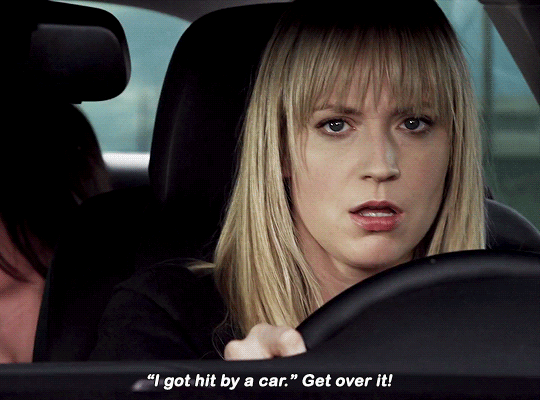
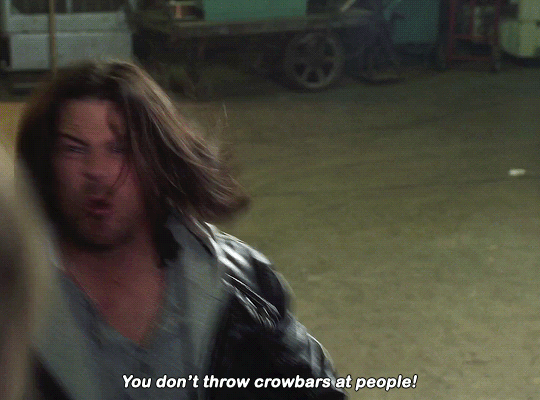
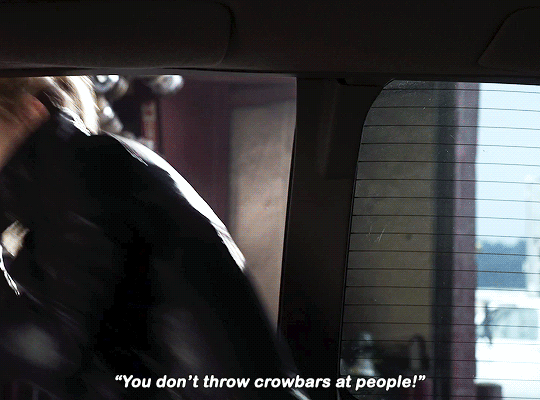
Leverage (2008-2012)
The Boost Job (S03E08)
The Three-Card Monte Job (S03E09)

#leverage#leverageedit#tvedit#eliot spencer#parker#leverage 3x08#the boost job#3x09#the three card monte job#gifs#marella#chewieblog#cinematv#tvarchive#mediagifs#filmtvcentral#userhella#userrobin#uservix#userlolo#singinprincess#userholloway#usertoph#tuserheidi#rogerhealey#quicklings#usergiu#usermimsi#usershale#userbuckleys
985 notes
·
View notes
Text
Shout out to Nate Ford who was probably determined to break the cycle and not treat his son the way his father treated him and didn’t get the chance.
#at least biologically#parenting a bunch of criminal adults was probably not on his life bingo card originally#I’m rewatching the three card Monte job#and feeling a lot of things#leverage#the three card monte job
217 notes
·
View notes
Text
Peak father son bonding -> pulling cons on folks with your dad while conning your dad into trusting you while he’s conning you into trusting him
16 notes
·
View notes
Text
You don’t throw crowbars at people

[ID: Sketch in dark red of Parker and Eliot Spencer, with Parker poking her head over the back door of a van, having just thrown a crowbar at Eliot, who is rubbing the back of his head with one hand. Based on Parker throwing a crowbar moment from The Three Card Monte Job. End ID]
105 notes
·
View notes
Text

Didn't feel super inspired this episode also I stopped drawing to eat dinner 👍
#leverage#the three card monte job#leverage tv#during the episode for the episode#crayon sketches#jimmy ford
7 notes
·
View notes
Text
"Hello, dad." happy father's day lmfao its time for Daddy Issues
15 notes
·
View notes
Text
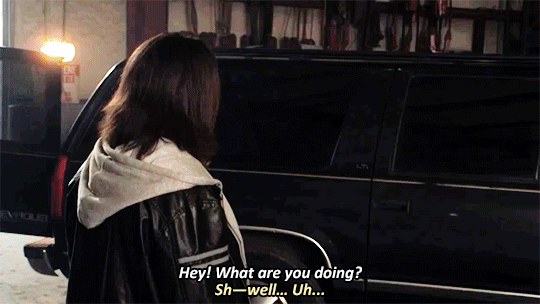
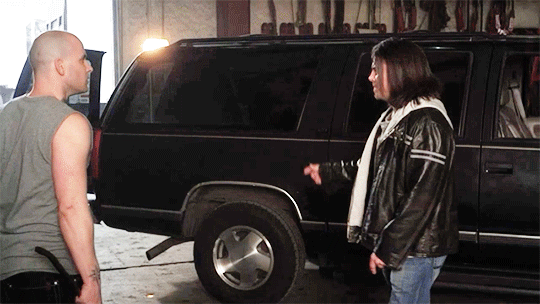
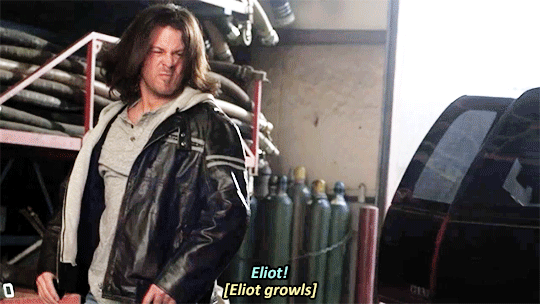
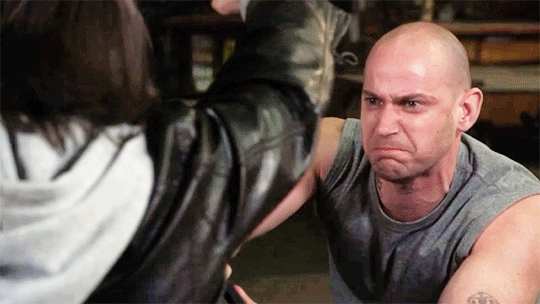
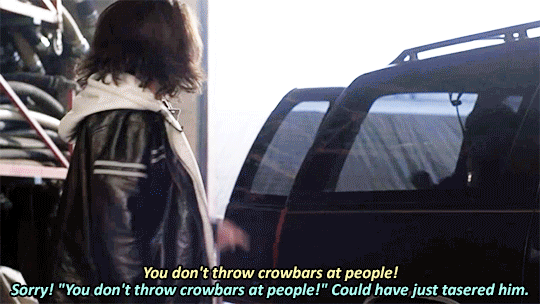
Leverage 3x9 - "The Three-Card Monte Job"
#christian kane#leverage#eliot spencer#parker#beth riesgraf#the three-card monte job#simakov#aaron jacobs
164 notes
·
View notes
Text
Not parking throwing a crowbar to Eliot and hitting him on the head. 🤣🤣🤣
7 notes
·
View notes
Text
FUCKIN DAD?!?!?!

3 notes
·
View notes
Text
Just started The Three Card Monte job and...we just met Nate's dad??? Oh no. This is gonna be ugly.
8 notes
·
View notes
Text
It’s Sunday, Leverage Marathon folks, time for another episode! This week we’re watching the 9th episode of season 3, The Three Card Monte Job - in which we meet an important figure in Nate’s life, Parker throws crowbars, Eliot doesn’t approve, Hardison plays with retail tech, and Sophie uses Nate’s grifting technique. Watch the episode with us on our Sunday Leverage Marathon discord server and post all about your feelings, thoughts, comments, anything & everything.
Come on in, say hi to your fellow fans, get comfortable. We’ll be starting in about 15 minutes at 3:35 PM Eastern U.S. Time - sorry for the short notice!
5 notes
·
View notes
Text
this piece of leverage commentary from the three-card monte job is priceless:



"i won't tell if you won't tell" "deal"
#leverageposting#leverage#parker leverage#eliot spencer#parker#wren speaks#they're gonna be in trouble if nate finds out. pretty sure they get away w this one bc everyone is immediately distracted by the appearance#of nate's father. so eliot & parker get off scot-free
745 notes
·
View notes
Text




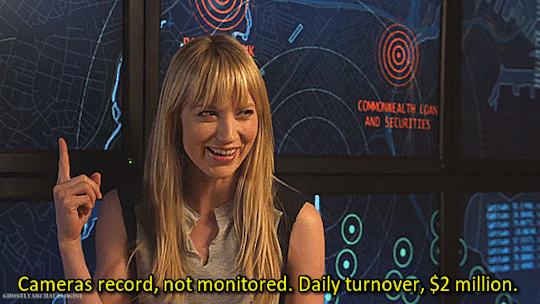

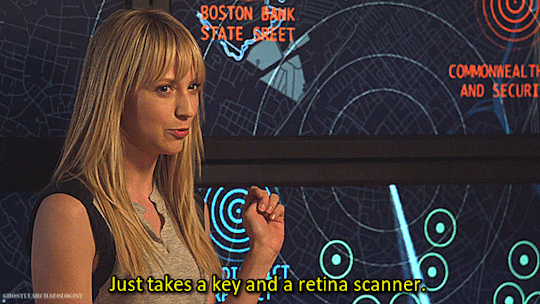
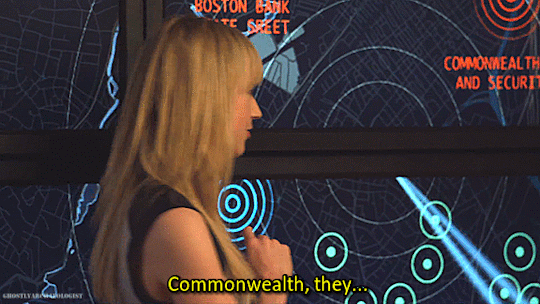

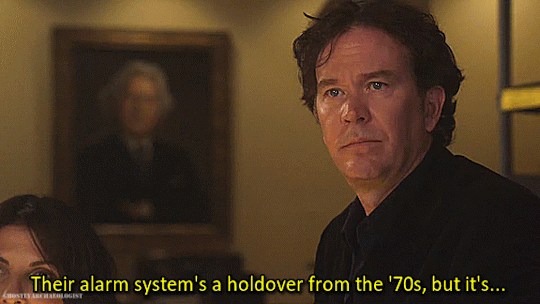
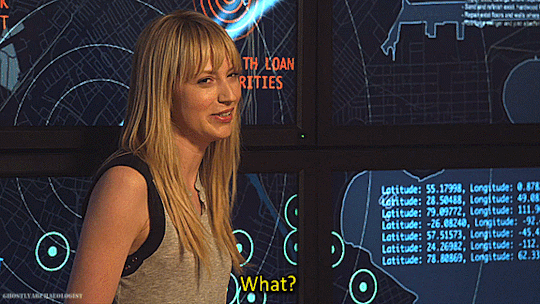

Leverage S03E09 The Three-Card Monte Job.
#leverage#nate ford#parker#eliot spencer#alec hardison#sophie devereaux#timothy hutton#beth riesgraf#christian kane#aldis hodge#gina bellman#i love how proud sophie looks in that shot panning across the team#immediately after this eliot says 'there's something wrong with you'#don't listen to him sweetie you're doing great#ghostly'sgifs
315 notes
·
View notes